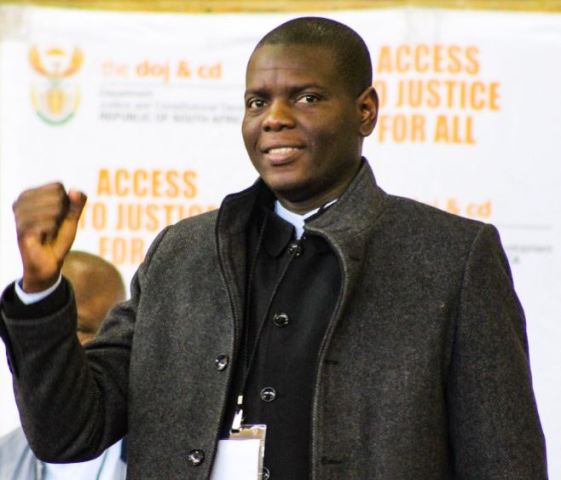South Africa Advances Bold Agenda During Historic G20 Presidency
At a media briefing in Pretoria on Monday, Minister of International Relations and Cooperation, Ronald Lamola, articulated the significance of South Africa’s G20 Presidency.

- Country:
- South Africa
South Africa has emerged as a dynamic and unifying force in global diplomacy as it continues its historic tenure as President of the Group of 20 (G20). Since assuming the role on 1 December 2024—succeeding Brazil—South Africa has hosted an impressive 51 meetings across various working groups, reflecting the nation’s commitment to shaping a more inclusive, sustainable, and equitable world order.
Embracing Global Leadership with Purpose
At a media briefing in Pretoria on Monday, Minister of International Relations and Cooperation, Ronald Lamola, articulated the significance of South Africa’s G20 Presidency. He emphasized that the success of this global leadership role should not be evaluated merely by the frequency of meetings or documents produced, but rather by the tangible improvements made in the lives of citizens and the promotion of global solidarity.
“Progress is not defined by the number of meetings we host or by the number of documents we deliver,” said Lamola. “Progress is defined by finding concrete and collective solutions to our challenges, and by how we improve the lives of all citizens, in particular the most vulnerable and most needy.”
Key Priorities: Climate, Debt, and Justice
South Africa’s G20 agenda has focused on critical and often underrepresented issues, including:
-
Disaster Resilience: Enhancing preparedness and support systems for climate-related disasters, particularly in vulnerable regions.
-
Debt Sustainability for Low-Income Countries: Advocating for long-term solutions to unsustainable debt burdens faced by developing nations.
-
Just Energy Transition: Promoting an equitable shift to clean energy that protects livelihoods and fosters inclusive development.
These priorities have garnered substantial support from G20 member states, despite the natural divergences in multilateral negotiations. South Africa’s Sherpa to the G20 reaffirmed this backing during a presentation at the United Nations General Assembly in March 2025, where delegates expressed broad endorsement of South Africa’s Presidency agenda.
Strengthening Africa’s Voice in Global Governance
A defining theme of this year’s Presidency is the assertion of African agency on the world stage. South Africa has made it a mission to ensure that African perspectives and priorities are woven into the fabric of global governance discussions. This includes addressing persistent issues such as political instability, governance challenges, and slow economic growth across the continent.
Key policy efforts include:
-
Youth Employment: Developing strategies to tackle high unemployment rates among African youth.
-
Digitalisation: Promoting access to digital technologies and infrastructure across the continent.
-
Inclusive Growth: Ensuring that economic development leaves no one behind.
To support these goals, the G20 Presidency has initiated specialized task forces focused on economic development, food security, and governance of artificial intelligence.
Institutional Reforms and Multilateralism
Another cornerstone of South Africa’s Presidency is a comprehensive review of the G20’s operational mechanisms. This assessment aims to modernize and improve the efficiency of G20 structures and will culminate in a formal presentation at the upcoming G20 Leaders’ Summit at the Nasrec Expo Centre in Johannesburg.
South Africa is also aligning its G20 leadership with the milestone 80th anniversary of the United Nations, using this opportunity to call for reforms in global governance institutions and sustainable development frameworks. Minister Lamola stressed that the global community must recommit to multilateral cooperation in the face of escalating geopolitical and geoeconomic instability.
“Unilateral actions that undermine the rules-based order risk reversing decades of progress,” he warned. “Multilateral cooperation is not optional—it is imperative.”
Cultural Diplomacy and Public Engagement
Recognizing the power of culture to inspire unity, South Africa’s G20 Presidency has also tapped into the arts. Minister Lamola announced the release of “Africa’s Call,” a collaborative anthem by Ndu Shezi featuring the Wav Choir. The song, which embodies the spirit of Ubuntu, African identity, and the Presidency’s mission, is now streaming globally.
“This anthem is a reminder that culture and our common humanity unite us even as we debate and sometimes disagree on policies,” said Lamola. “I invite all citizens to listen, share, and let their message of hope resonate in all communities across South Africa.”
A Call to National Participation
Concluding his remarks, Lamola called on every South African to actively engage with the G20 Presidency. “Engage with it, own it, and hold us accountable,” he urged. The government aims to ensure that the legacy of this leadership term is not confined to diplomatic circles but is also embraced and shaped by the people.
As South Africa navigates the complexities of global leadership, it stands at the helm of a momentous opportunity—not only to influence the G20’s direction but also to reshape the global narrative in a way that centers Africa, inclusivity, and sustainability.










